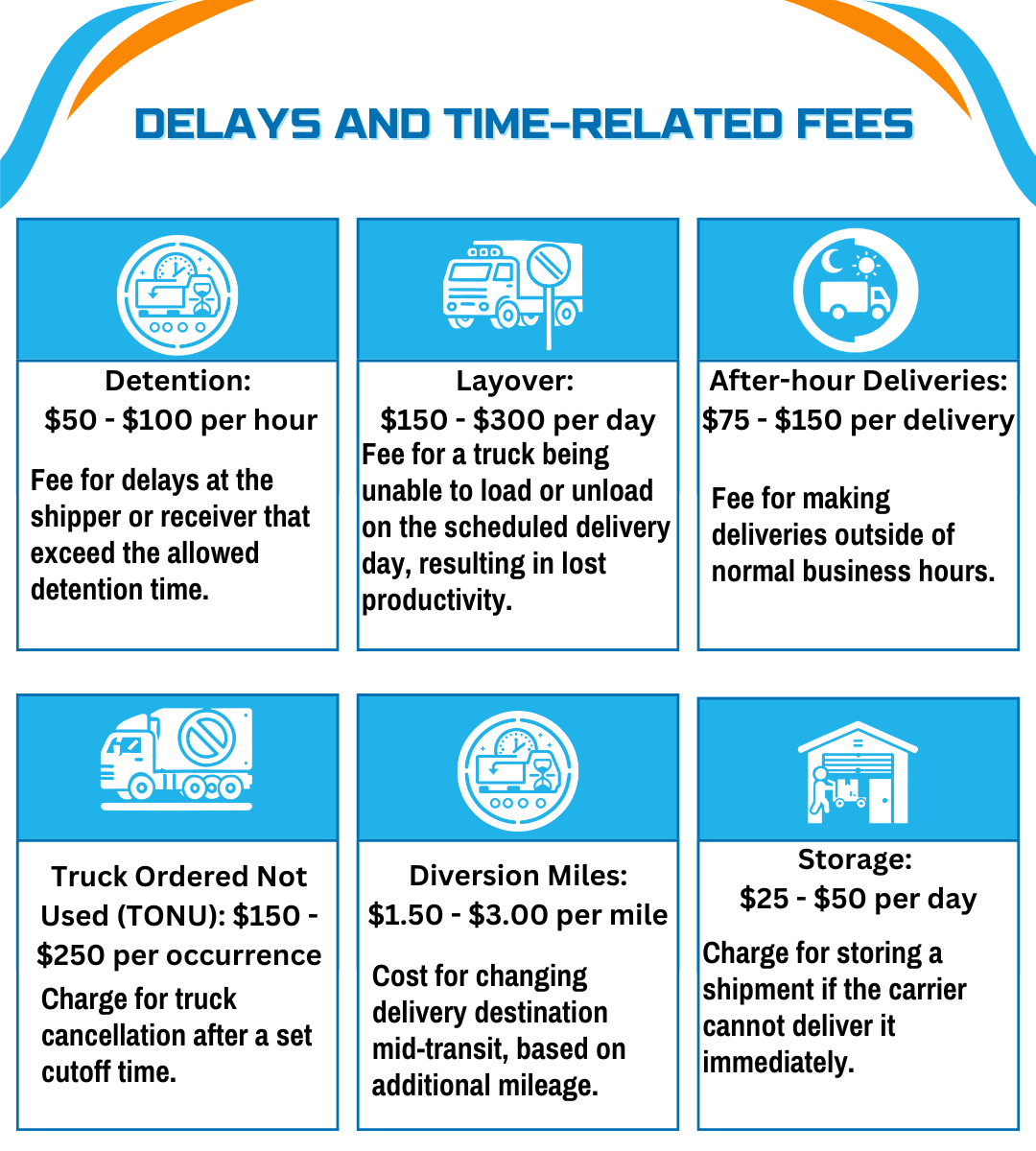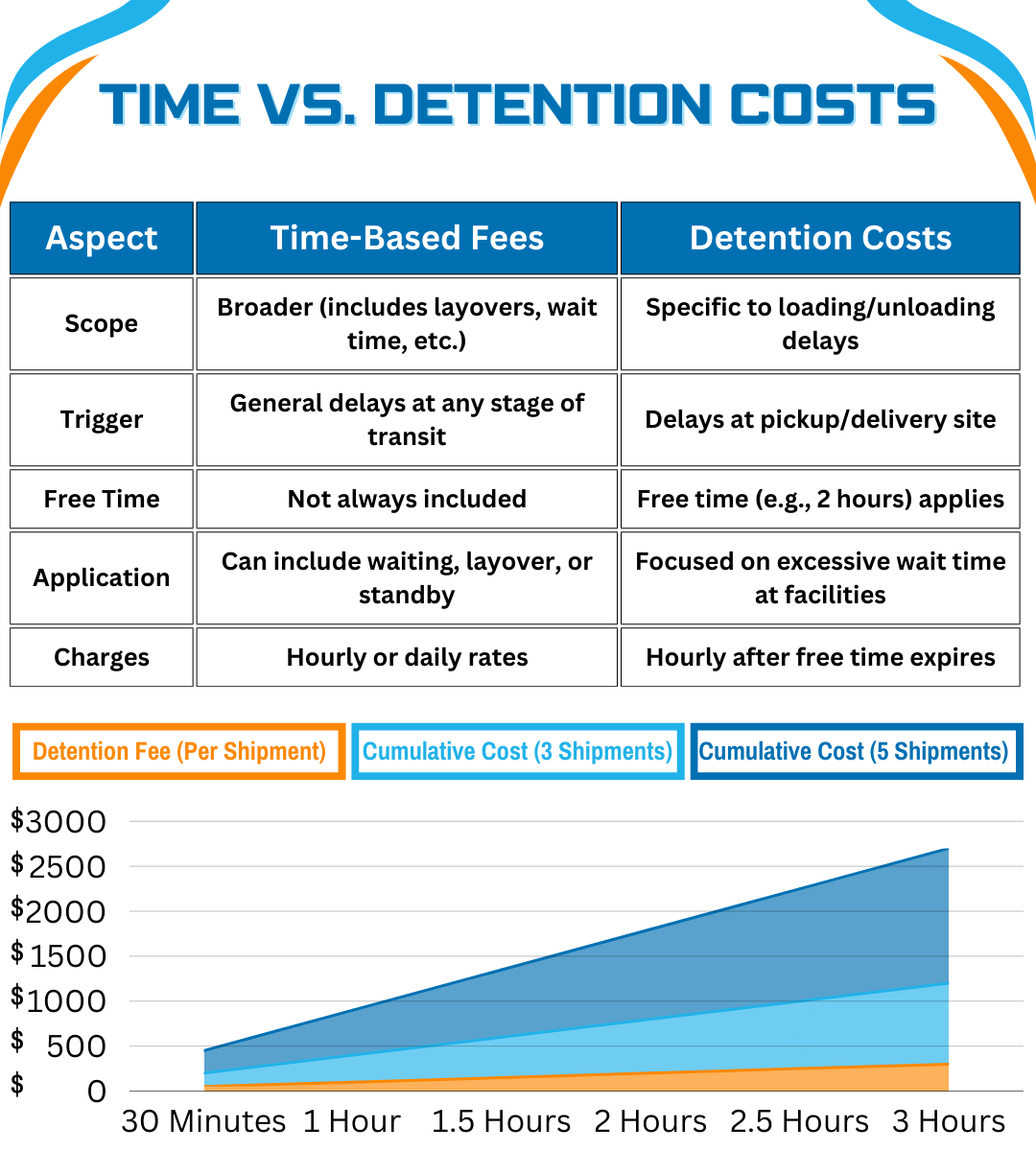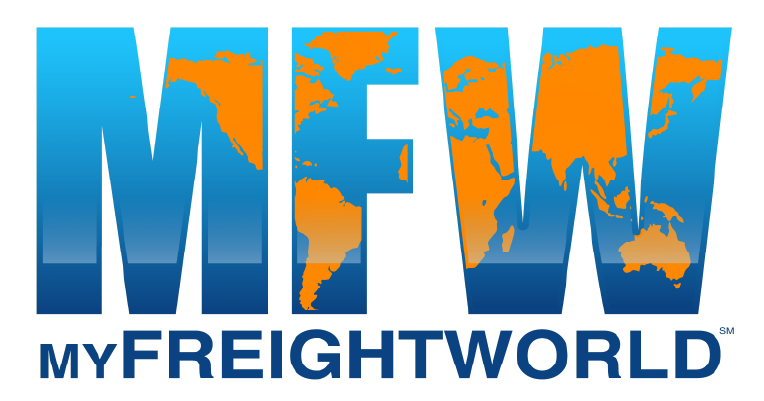
Introduction
Accessorial fees in freight shipping are a lot like those subscription services you forgot you signed up for—small charges that seem harmless but quietly add up over time. Before you know it, those unnoticed fees are eating away at your budget. Whether it’s detention fees for delays, liftgate charges for special equipment, or redelivery costs for missed deliveries, these extras can inflate your shipping expenses by as much as 10-30%.
The good news? With a little planning and smart strategies, you can minimize or even eliminate these extra costs. In this guide, we’ll break down accessorial charges, explain what causes them, and share practical tips to streamline your freight operations and keep your shipping budget on track.
What Are Accessorial Fees in Freight Shipping?
Accessorial fees are additional costs imposed by carriers for services that go beyond normal shipping duties. These extra charges occur due to time delays, special equipment needs, manual labor, or other unforeseen circumstances during pick-up or delivery.
Example: Let’s assume your company ships 50 loads monthly. If each load incurs a $100 detention fee, that’s an extra $5,000 in unplanned costs every month!
Common Types of Accessorial Fees
Delays and Time-Related Fees

- Detention: $50 – $100 per hour
Fee for delays at the shipper or receiver that exceed the allowed detention time. - Layover: $150 – $300 per day
Fee for a truck being unable to load or unload on the scheduled delivery day, resulting in lost productivity. - After-hour Deliveries: $75 – $150 per delivery
Fee for making deliveries outside of normal business hours. - Truck Ordered Not Used (TONU): $150 – $250 per occurrence
Charge applied if a truck is canceled after a predetermined cutoff time. - Diversion Miles: $1.50 – $3.00 per mile
The cost for changing the delivery destination mid-transit is based on additional mileage. - Storage: $25 – $50 per day
Charge for storing a shipment if the carrier cannot deliver it immediately.
Equipment and Special Handling Fees

- Liftgate: $50 – $75 per use
Fee for using a hydraulic platform to raise or lower shipments where no loading dock is available. - Oversized/Overlength: $75 – $800 per shipment
Charge for transporting shipments that exceed standard dimensions, requiring special load configuration. - Lumper: $75 – $200 per service
Charge for third-party labor used to load or unload freight at large distribution warehouses. - Reclassification and Reweigh: $25 – $50 per occurrence
Additional cost for correcting shipment details like weight, dimensions, or classification in LTL shipping. - Hazardous Materials: $50 – $100 per shipment
Additional charges for transporting hazardous materials, including extra paperwork and safety measures. - Fuel Surcharge: Varies based on price
Delivery Challenges and Location-Based Fees

- Redelivery: $75 – $150 per occurrence
Charge incurred when a shipment needs to be delivered again due to initial delivery failure. - Residential Delivery: $75 – $100 per delivery
Additional fee for delivering to residential areas requiring extra time and labor. - Inside Delivery: $50 – $100 per delivery
Cost of bringing a shipment inside a building, often involving extra equipment and labor. - Metro Pickup/Delivery: $50 – $100 per delivery
Fee for deliveries in congested urban areas with parking and navigation challenges. - Advance Notification: $10 – $25 per notification
Charge for notifying the consignee before delivery. - Limited Access: $50 – $100 per delivery
Fee for deliveries requiring extra work or security measures, often at locations like schools or government facilities. - Trade Shows: $40 – $200 per occurrence
Fee for pick up and delivery to a trade show or advanced warehouse
Time Vs. Detention Costs: A Closer Look

Time-based delays and detention fees can significantly impact your shipping budget, but understanding their differences and triggers can help mitigate unnecessary costs.
- Time-Based Fees: These fees include a broader scope of delays—layovers, wait times, and standby—that can occur at any stage of transit. Charges may apply hourly or daily depending on the delay.
- Detention Fees: Detention is more specific and applies to delays at pick-up or delivery sites. Carriers typically allow a certain amount of free time (e.g., 2 hours), after which hourly detention rates apply.
The Cost Impact The graph below illustrates how quickly detention fees escalate over time and compound across multiple shipments:
- At 30 minutes, costs start small but noticeable.
- By 3 hours, cumulative detention costs for just 5 shipments can exceed $2,500.
7 Proven Strategies to Reduce Accessorial Charges
1. Double-Check Shipment Details
Many accessorial fees occur due to inaccurate shipment details. Ensure the following:
- The Bill of Lading (BOL) is correct and complete.
- Weight, dimensions, and freight class are accurately listed.
- Any special handling requirements (e.g., liftgate, inside delivery) are communicated upfront.
Tip: Use Transportation Management Systems (TMS) to validate shipment details automatically before carrier pick-up. This reduces the risk of reweighs, reclassifications, and surprise fees.
2. Streamline Loading and Unloading Processes
One of the most frequent accessorial fees is detention—charges for excessive loading or unloading time. To prevent this:
- Schedule appointments with carriers for both pick-up and delivery to avoid wait times.
- Ensure shipments are ready to load upon carrier arrival.
- Allocate resources for faster unloading, such as adequate staffing and equipment.
3. Leverage Carrier Scorecards
Tracking carrier performance can help identify partners who consistently incur delays or excessive fees. Create scorecards that measure metrics such as:
- On-time pick-ups and deliveries.
- Frequency of detention, layovers, and redelivery fees.
- Communication and responsiveness.
Reward high-performing carriers with more shipments and reevaluate relationships with underperforming partners.
4. Use Technology to Proactively Manage Delays
Investing in real-time GPS tracking and digital freight tools can provide immediate visibility into potential delays. Features like automated alerts enable shippers to:
- Address delays as they occur.
- Notify carriers and receivers in real time.
- Adjust schedules to minimize detention time and layovers.
Using technology proactively reduces inefficiencies that often lead to additional fees.
5. Negotiate Detention Free Time in Contracts
Work with carriers to include favorable terms for detention fees in contracts. Strategies include:
- Negotiating extended free time (e.g., from 2 hours to 3 hours).
- Capping detention rates to limit costs.
- Including penalties for repeated delays caused by carriers.
Negotiating these terms upfront can lead to substantial savings over time.
6. Track and Address Recurring Accessorial Fees
Analyze historical shipping data to identify the most common types of accessorial fees your business incurs. Focus on resolving recurring issues by:
- Streamlining operations to minimize common delays.
- Adjusting processes for frequently flagged fees like liftgate charges or redelivery costs.
- Educating teams on best practices to avoid preventable fees.
7. Optimize Communication Between Shippers and Receivers
Clear and consistent communication between shippers, carriers, and receivers is critical to avoiding unnecessary accessorial fees. Miscommunication often leads to delays, redelivery fees, and limited access charges.
Ways to Improve Communication:
- Provide receivers with accurate shipment ETAs using real-time tracking tools.
- Confirm dock availability and access requirements (e.g., liftgate or inside delivery) in advance.
- Set clear instructions for loading/unloading processes and share them with all involved parties.
- Use automated notifications to alert receivers about any delays or changes.
By optimizing communication, you reduce the risk of missed deliveries, confusion at drop-off locations, and avoidable charges.
Take Control of Accessorial Fees
Accessorial charges don’t have to be a permanent drain on your logistics budget. By streamlining processes, leveraging advanced technology, and fostering strong carrier partnerships, businesses can identify and eliminate unnecessary costs.
At MyFreightWorld, we specialize in helping businesses optimize freight operations, reduce accessorial fees, and maximize supply chain efficiency.
Ready to save on shipping? Contact us today to learn how our solutions can transform your freight management strategy.
